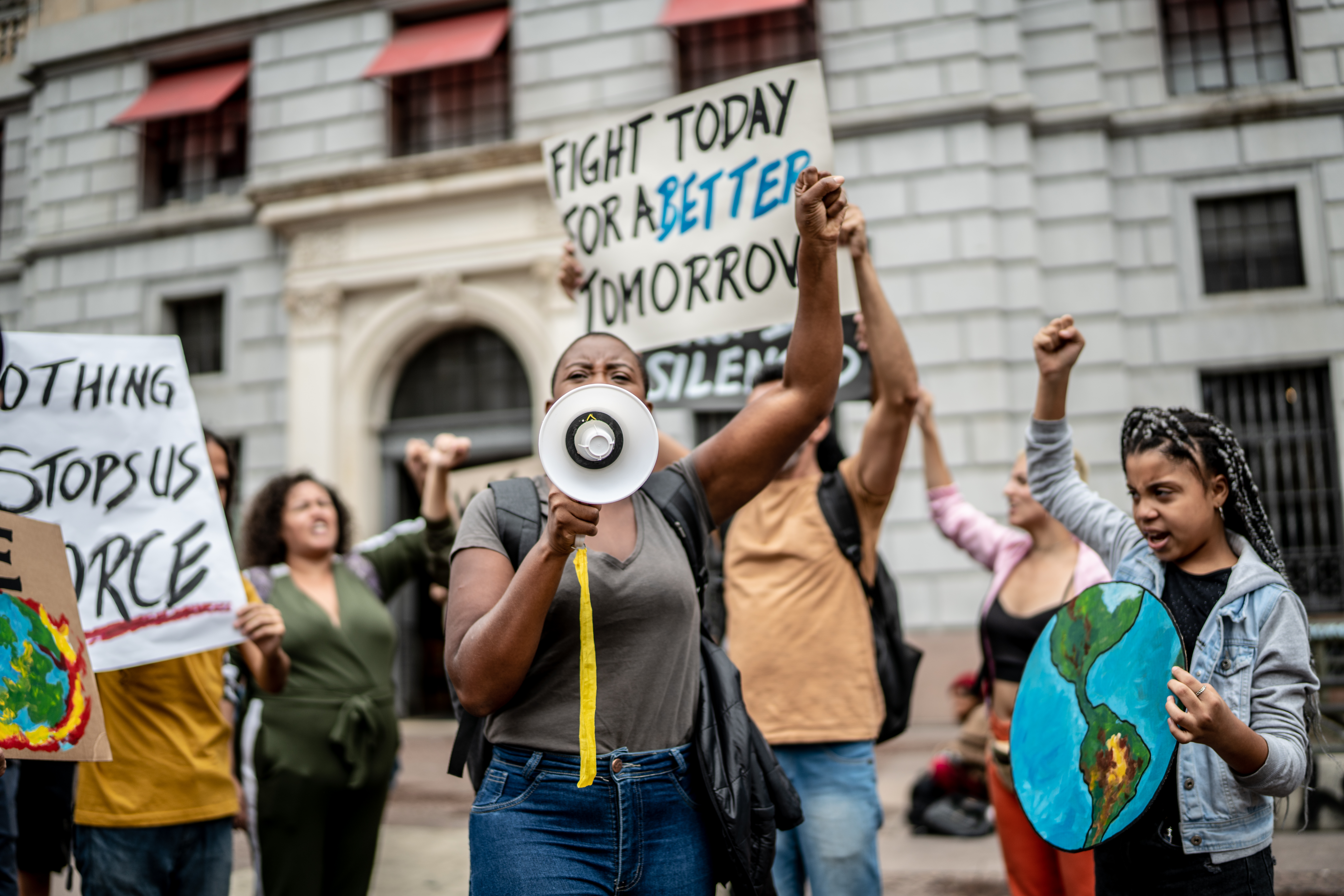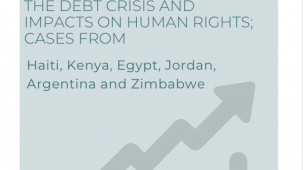On 14 September, 2021, ESCR-Net hosted a roundtable on Confronting Corporate Capture to Advance Climate Justice: A Feminist Perspective. This event took place during the Global South Women’s Forum 2021: Co-Creating Spaces for Global South Feminist Visions of Environmental Justice organized by International Women’s Rights Action Watch Asia Pacific (IWRAW-AP).
This session was an invitation to explore how women in their diverse identities can collectively face and overcome corporate capture towards making climate justice and a healthy, safe and clean environment a reality for women and girls already confronting the highest costs of the climate crisis.
In our world, powerful corporations are increasingly taking control of government decision-making processes that impact public interest and fundamental rights. This has been identified within ESCR-Net and in the broader field, as “corporate capture.” This phenomenon of corporate capture hugely exacerbates the climate emergency. While coal and oil companies knew about the impacts of climate change as early as the 1960s and 1970s respectively, the fossil fuel industry has spent billions to control the global climate change conversation in order to impede effective action to address the climate crisis from a human rights perspective. This is just one of the manifestations of corporate capture and how it impacts the climate crisis, including through influencing certain solutions to the crisis, and in ways that are particularly damaging for gender justice. In her introduction, Maha Abdallah (Cairo Institute for Human Rights Studies) recalled that “corporations are increasingly taking control of governmental decision making processes and that is negatively impacting and influencing public interest […] and despite the massive and negative impacts on our daily lives, on our environment, on our rights, corporations and businesses are still managing to escape liability and accountability”.
The current COVID-19 pandemic exacerbates corporate capture in all sectors. According to Alejandra Scampini of PODER, “Corporate capture has become more acute during the pandemic. While many people, especially women, fell into poverty, big capital got richer. Globally, at least a 5% slump in the economy is expected, according to World Bank data, but the richest entrepreneurs, especially the owners of the platform companies, have continued to get richer. Added to this is the pressure from companies to access economic rescue packages from companies or influencing governments to declare certain sectors essential while the citizenry remains in confinement with major health restrictions. During the pandemic we have seen a growth of corporate capture; Alejandra shared some examples such as “manipulation of communities that resisted working in precarious conditions, privatization of public services such as education or health, economic diplomacy to gain access to quick laws, interference in science validating reports of dubious origin, capture of narratives that reduce opponents to anti-human rights measures as enemies of development”.
Transnational and State-owned corporations, especially from the fossil fuel industries have developed lobbying strategies to maintain climate inaction for more than 25 years. In the words of Nathalie Rengifo (Corporate Accountability), “25 largest fossil companies are responsible for 50% of carbon emissions. The international negotiations (to reduce carbon emissions) have clearly not targeted those responsible nor shown the way to protect the most vulnerable people”. As the climate crisis intensifies, corporations have changed their strategies, avoiding direct opposition to any negotiations that would generate public outcry but instead they actively advocate for the status quo and promote greenwashing measures (like the zero-net emissions) that do not tackle the root causes of climate change.
The situation faced by the Wayúu indigenous peoples in La Guajira, Colombia illustrates the failure of the Colombian State to protect local communities from so-called development projects led by transnational companies that have been generating a health and environmental crisis and internal displacement due to major pollution of the environment in which the communities live. “This is a socio-environmental tragedy […] with a concentration of wealth that interconnects with the environmental crisis” commented Martha Devia, a tragedy that puts at risk the very livelihood and life of communities in one of the world’s most dangerous countries for environmental human rights defenders.
Juana Toledo (Consejo de Pueblos Wuxhtaj) reminded us of the structural social and cultural inequalities. “Women are deprived of information about climate change and their participation in decision-making processes. Women are less likely to be compensated in the displacement or destruction of their homes by extractive projects. In my country, Guatemala, women are more likely to die and to leave their lands during climate disasters”. Women’s struggles for livelihoods and sustainable life also face the negative impacts of tourism and renewable energy projects that are often designed and implemented without the consent of local communities as highlighted by Subashini Deepa (NAFSO) who organizes fisherwomen to defend their human rights in Sri Lanka.
But there are ways to tackle corporate capture. During the event, women leaders shared strategies and tactics they have developed to confront corporate powers, emphasising the importance of strengthening the leadership of women within their own movements to advancing resistance and articulating alternatives that promote climate justice and a healthy environment. According to Alejandra Scampini, “popular education can be a catalyst in deconstructing the narrative that tends to present communities and organisations who oppose corporate capture as against development and the general interest. There is a great need to invest in spaces where discussions on the climate crisis are taking place and women human rights activists and affected communities can play an important role in showing the deep intersection between women’s rights and the right to a healthy environment and in bridging science and lived experiences at the community level.”
In a final round of questions from the audience, ESCR-Net members recalled the necessity to unite climate and feminist struggles to denounce that the same system hides behind the struggles for human rights and that corporations have tried to decouple the social problem from structural violence, focusing on individual responsibilities instead of looking at the more systemic root causes and on the due diligence of companies and States. Women are often those who face persecution, criminalization and attacks when they dare to speak the truth to powers. Women human rights defenders face specific risks, so protection measures must take into consideration these specific risks (sexual violence, online violence and attacks on social networks, attacks coming from the family or from the community itself due to gender stereotypes, etc.).
In front of such powerful actors, unity and synergy between movements and struggles can help amplify local struggles and be a shield to many women human rights defenders across the world. In the words of Patricia Wattimena (APWLD), “such struggles need to be supported by international solidarity and alliances to help alternative feminist narratives dismantle corporate power.”
In dialogue at this event courageous and determined women rights advocates and activists spoke to the immense force and transformative potential of feminist and environmental struggles when they are connected. As Subashini Deepa powerfully summarized it: “When they are united, women cannot be defeated.”


